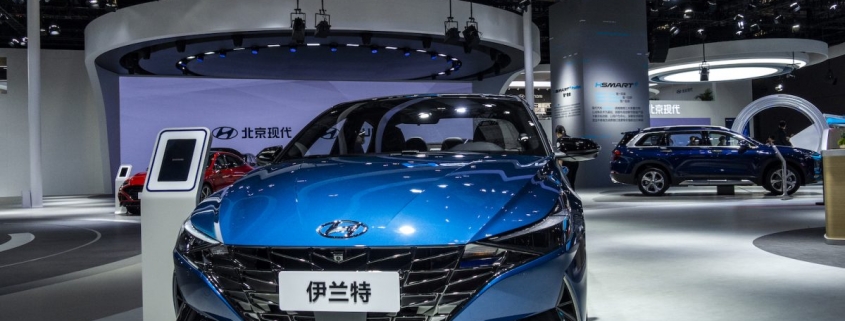Avoid These New Cars That Already Need Repairs Says Consumer Reports
Recent Consumer Reports tests found that several new cars across multiple brands that went through a redesign already show signs of defects. Test results put the Hyundai Elantra, Nissan Rogue, Toyota Sienna, and other cars under the microscope. Cars considered reliable have issues, but they usually don’t present for a number of years. Even cars considered less than reliable take time to expose their issues. These are some of the most problematic new cars so far, according to Consumer Reports.
2021 Hyundai Elantra
Consumer Reports engineers conducted a test with this year’s Hyundai Elantra and its pedestrian detection system. The emergency braking system worked when tested against a crash dummy, but according to Consumer Reports engineers, the engine would stall during the test, which meant the driver had to shift into park or neutral and restart the engine. The engineers informed Hyundai, which replicated the problem and issued a software update for the Elantra’s transmission.
2021 Nissan Rogue

This year’s Nissan Rogue exhibited symptoms with its emergency handling. While it would swerve out of a lane and return, the inside wheels would lift off the ground by a couple of inches. Nissan was informed, and they figured the best way to fix the problem was to retune the electronic stability control system (ESC). A local dealer implemented this fix and was not able to replicate the issue. Owners of the 2021 Nissan Rogue should visit a dealer to retune their ESC system.
2021 Toyota Sienna Hybrid
Owners of the 2021 Sienna Hybrid may experience extremely sensitive brakes. Consumer Reports tested a Sienna Hybrid and found that it didn’t take much force to make the car come to an abrupt halt, citing difficulty moderating brake application. In other words, a smooth stop was out of the question. Thankfully there is a fix. Dealerships should be able to recalibrate the ABS, which in theory should eliminate the problem. The Toyota Sienna scored middle-range predicted reliability on Consumer Reports’ most reliable minivans list.
2018 Tesla Model 3

Surprisingly, or perhaps unsurprisingly, the Tesla Model 3 ran into some gaps with quality assurance as well. Consumer Reports found during its brake tests that the Model 3’s stop distance was 152 feet from 60 mph. That’s apparently slightly worse than an F-150, and much worse than the Tesla Model X. Tesla fixed the problem with an over-the-air update, which took a 20-foot chunk out of the stopping distance.
Heed these warnings and have your car checked out
Other cars affected by various problems were the 2021 Kia Seltos for its transmission module, the 2020 Cadillac CT5 for its brake line, brake pad sensor, and front camera, as well as the 2019 Mercedes-Benz A220 and 2020 CLA250 for their airbags. Several recalls have already been issued for the new Chevrolet Tahoe, F-150, the 2020 Land Rover Range Rover Evoque, and the 2020 Mazda CX-30.
Other cars from the last two years already need repairs from factory defects, including the F-150’s misfiring PowerBoost hybrid engine and the Chevrolet Suburban’s third-row seat not latching properly. It seems from these numerous examples, that quality control has taken a back seat. If you own any of these cars or any new cars for that matter, keep a close eye on Technical Service Bulletins (TBS) and recalls to make sure your car is as safe as it was intended.
RELATED: Interesting Hidden Gems According to Consumer Reports
The post Avoid These New Cars That Already Need Repairs Says Consumer Reports appeared first on MotorBiscuit.







